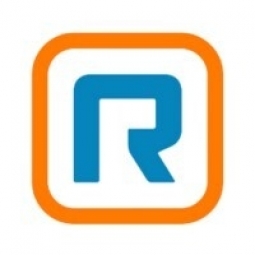Technology Category
- Application Infrastructure & Middleware - Database Management & Storage
- Infrastructure as a Service (IaaS) - Cloud Databases
Applicable Industries
- Healthcare & Hospitals
- Telecommunications
Use Cases
- Personnel Tracking & Monitoring
Services
- System Integration
- Training
About The Customer
Blue Health Intelligence (BHI) is a premier health intelligence resource in the U.S., delivering data-driven insights about healthcare trends and best practices. The company generates software products that provide customers with different ways of looking at data. BHI accesses the industry's largest and most comprehensive database of integrated medical and pharmacy claims, making it a valuable resource for any entity committed to high-quality healthcare coverage and services. Founded in 2010, BHI has 120 employees and is headquartered in Chicago.
The Challenge
Blue Health Intelligence (BHI), a leading healthcare database company, was facing challenges with its on-premise PBX systems across its offices in Chicago, Florida, and California. The PBX systems were not identical, which made administration and management difficult. The company, which relies heavily on collaboration between its employees in different locations, found communication problematic due to the lack of cross-functionality in the PBX systems. The situation was hindering the company's ability to deliver its data-driven insights about healthcare trends and best practices effectively.
The Solution
BHI chose to switch to RingCentral's cloud communications solution to address its communication challenges. The feature-rich system provided by RingCentral enabled BHI's employees to stay connected and available anytime, anywhere. The employees heavily relied on individual conference bridges to collaborate with colleagues at different offices. The RingCentral mobile app became a crucial tool for BHI, allowing employees to send and receive calls when away from their desks. RingCentral's system was user-friendly and did not require extensive training, allowing BHI's IT staff to maintain it internally and freeing up their time for other projects. Importantly, the communications solution met BHI's regulatory compliance needs, a critical factor for the company operating in the medical field.
Operational Impact

Case Study missing?
Start adding your own!
Register with your work email and create a new case study profile for your business.
Related Case Studies.

Case Study
Hospital Inventory Management
The hospital supply chain team is responsible for ensuring that the right medical supplies are readily available to clinicians when and where needed, and to do so in the most efficient manner possible. However, many of the systems and processes in use at the cancer center for supply chain management were not best suited to support these goals. Barcoding technology, a commonly used method for inventory management of medical supplies, is labor intensive, time consuming, does not provide real-time visibility into inventory levels and can be prone to error. Consequently, the lack of accurate and real-time visibility into inventory levels across multiple supply rooms in multiple hospital facilities creates additional inefficiency in the system causing over-ordering, hoarding, and wasted supplies. Other sources of waste and cost were also identified as candidates for improvement. Existing systems and processes did not provide adequate security for high-cost inventory within the hospital, which was another driver of cost. A lack of visibility into expiration dates for supplies resulted in supplies being wasted due to past expiry dates. Storage of supplies was also a key consideration given the location of the cancer center’s facilities in a dense urban setting, where space is always at a premium. In order to address the challenges outlined above, the hospital sought a solution that would provide real-time inventory information with high levels of accuracy, reduce the level of manual effort required and enable data driven decision making to ensure that the right supplies were readily available to clinicians in the right location at the right time.

Case Study
Gas Pipeline Monitoring System for Hospitals
This system integrator focuses on providing centralized gas pipeline monitoring systems for hospitals. The service they provide makes it possible for hospitals to reduce both maintenance and labor costs. Since hospitals may not have an existing network suitable for this type of system, GPRS communication provides an easy and ready-to-use solution for remote, distributed monitoring systems System Requirements - GPRS communication - Seamless connection with SCADA software - Simple, front-end control capability - Expandable I/O channels - Combine AI, DI, and DO channels

Case Study
Driving Digital Transformations for Vitro Diagnostic Medical Devices
Diagnostic devices play a vital role in helping to improve healthcare delivery. In fact, an estimated 60 percent of the world’s medical decisions are made with support from in vitrodiagnostics (IVD) solutions, such as those provided by Roche Diagnostics, an industry leader. As the demand for medical diagnostic services grows rapidly in hospitals and clinics across China, so does the market for IVD solutions. In addition, the typically high cost of these diagnostic devices means that comprehensive post-sales services are needed. Wanteed to improve three portions of thr IVD:1. Remotely monitor and manage IVD devices as fixed assets.2. Optimizing device availability with predictive maintenance.3. Recommending the best IVD solution for a customer’s needs.

Case Study
HaemoCloud Global Blood Management System
1) Deliver a connected digital product system to protect and increase the differentiated value of Haemonetics blood and plasma solutions. 2) Improve patient outcomes by increasing the efficiency of blood supply flows. 3) Navigate and satisfy a complex web of global regulatory compliance requirements. 4) Reduce costly and labor-intensive maintenance procedures.









